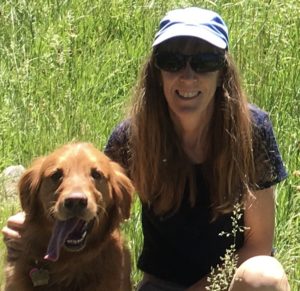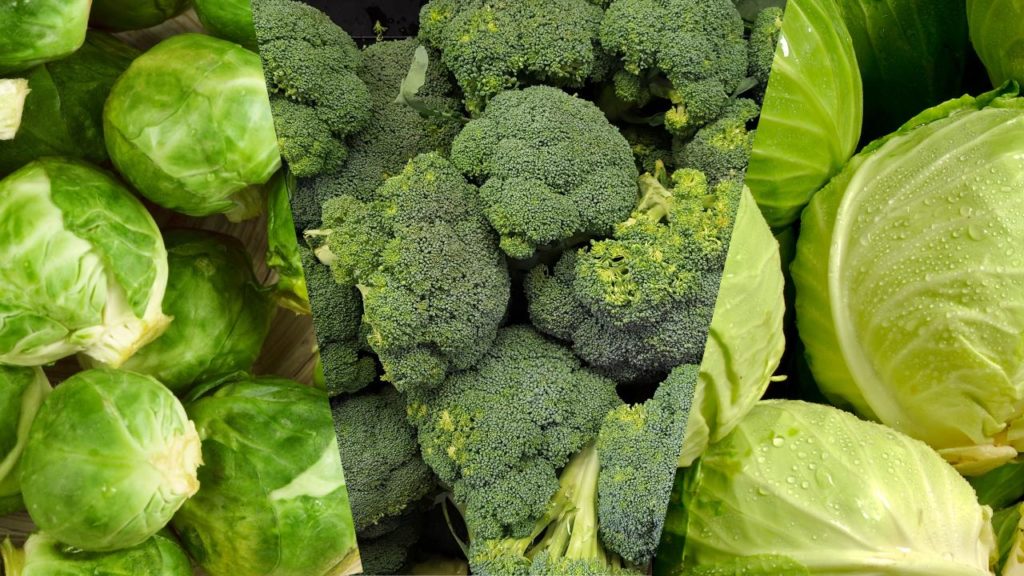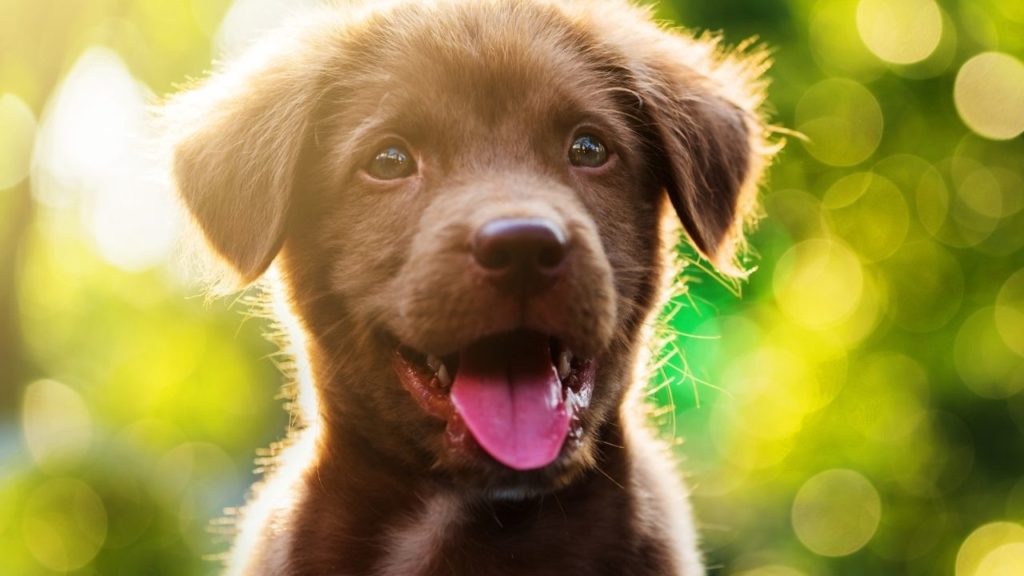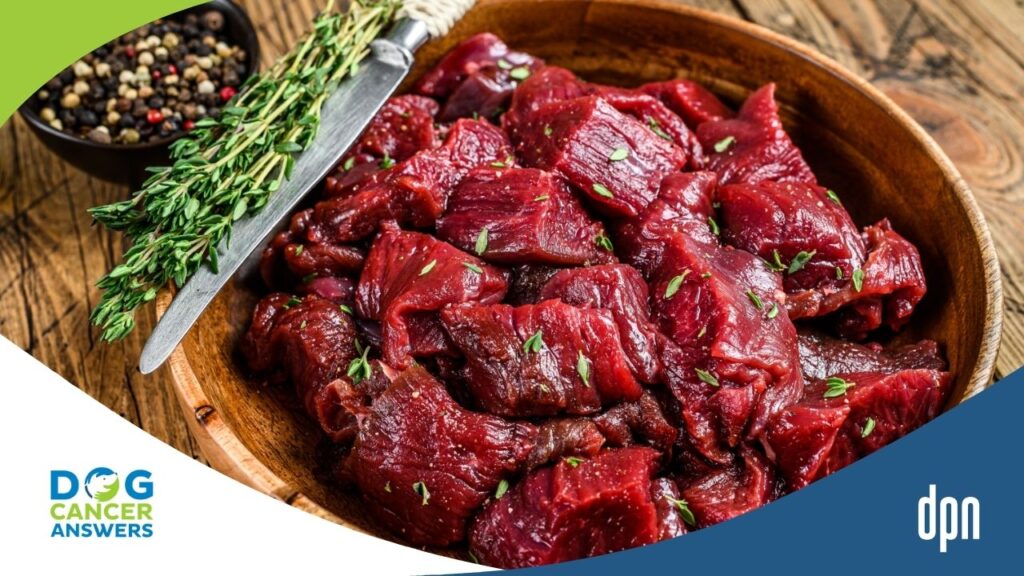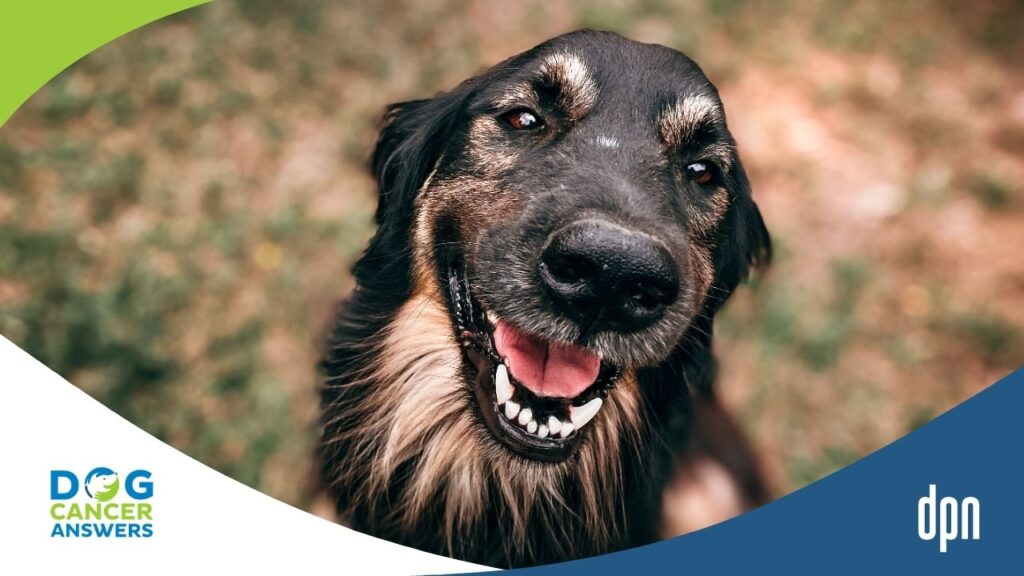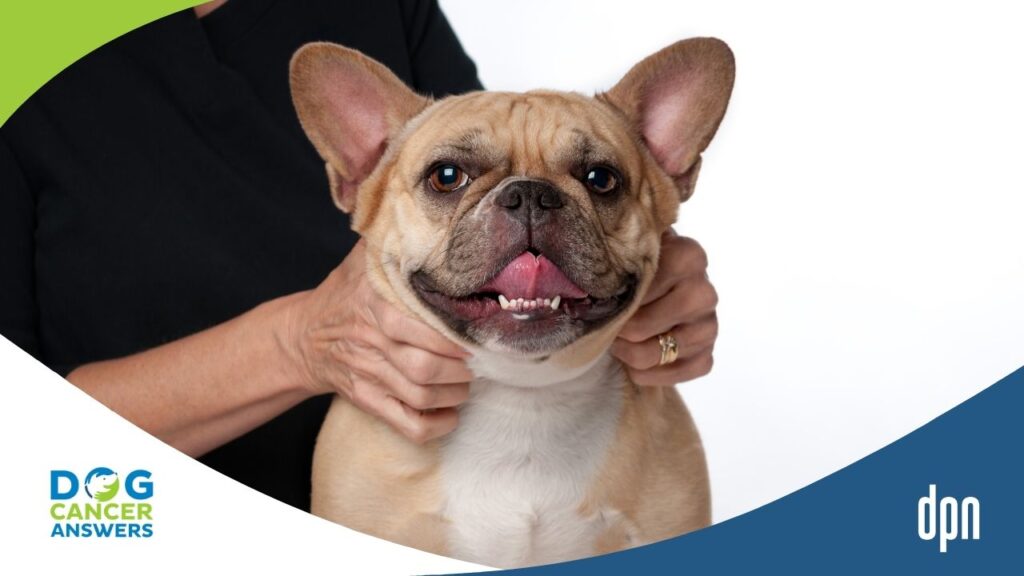EPISODE 156 | RELEASED February 28, 2022
Can I Prevent Dog Cancer With Diet? | Dr. Nancy Reese Q&A
Is there something that you can feed your puppy to prevent him from getting cancer in his life? Dr. Nancy Reese weighs in.
SHOW NOTES
Caller John just got a new Sheltie puppy, and he asks a question that many dog lovers have wondered about: can he protect his puppy from cancer by feeding him a particular diet? There is no simple answer. Feeding a quality diet with minimal dietary carcinogens and added vegetables can help to keep the body healthy, but there are many other factors that come into play to cause a case of cancer. Dr. Nancy discusses some of the things to consider when choosing what to feed your dog, along with the limitations that prevent diet from being a silver bullet to prevent cancer.
Links Mentioned in Today’s Show:
[00:00:00] >> Dr. Nancy Reese: I love the idea of incorporating fresh vegetables. Green, leafy, vegetables and yellow and orange vegetables can be help to prevent bladder cancers in dogs that are really prone to it. So I think including something like fresh vegetables and things is a great thing.
[00:00:20] >> Announcer: Welcome to Dog Cancer Answers, where we help you help your dog with cancer. Here’s your host, James Jacobson.
[00:00:28] >> James Jacobson: Hello friend. Today on Dog Cancer Answers we are going to talk about something a little different. We’re going to talk about prevention, preventing dog cancer. We received a call on our Listener Line asking if you can prevent cancer with diet. To answer that question, we are joined once again by Dr. Nancy Reese, our chief medical editor. As well as being a dog lover herself, Dr. Nancy has been a practicing veterinarian for over three decades, and she also has a Master’s degree in Preventative Veterinary Medicine and a PhD in Epidemiology. Dr. Reese, thank you so much for being with us again today.
[00:01:10] >> Dr. Nancy Reese: Thanks for having me back. It’s always engaging talking to you.
[00:01:14] >> James Jacobson: Today we have a caller uh named John, who is calling about his three month old Sheltie. And the dog does not have cancer, luckily, but he has had Shelties that have in the past. And so he wants to know what to feed it. Let’s listen to John.
[00:01:31] >> John: I have a three month old Sheltie puppy, I just got him, male. I’d like to know what’s the best diet to feed a puppy this age, a dog this age, so he doesn’t develop cancer any time in his life. I’ve had two Shelties in the past, both of them passed away of some kind of cancer. I don’t know what caused the cancer. I’d like to know, get this puppy off to the right start.
If I could get a answer about what potentially is the best diet to feed the doggy. The person that, that I’m buying it from has been feeding them a diet of grains, food with grain in it. And I’m not sure if that’s a good diet for the puppy. Thank you very much for any answer you may give me for this, ’cause I really want to get the puppy off to the right start.
Thank you.
[00:02:19] >> James Jacobson: So, Nancy, what are your thoughts? What do you feed a puppy to hopefully prevent the dog from later on getting cancer?
[00:02:28] >> Dr. Nancy Reese: Boy. I really wish we had the ultimate answer for that, that I could say-
[00:02:32] >> James Jacobson: Wait. I thought you were gonna tell us the definitive answer, no?
[00:02:35] >> Dr. Nancy Reese: I really, ha, I always, I hate to say dread this question, but – because we would love to say, I’ve got the answer, you do this and you prevent cancer.
Um, and I honestly would say one of the best good explanations or write-ups that I’ve seen about to prevent cancer came from one of Molly’s blogs recently, one of the Dog Cancer Newsletters that came out. And she wrote it up so well saying things like, you know, first thing cancer is so multifactorial that it’s not any one thing that causes it.
So I would love to say if we just fed the animals right, they wouldn’t get cancer. Unfortunately, I’ve seen animals on every kind of diet that have developed cancers. I’ve also seen dogs on every kind of diet not get cancers. So there’s, it’s so much more than just diet. So we do the best we can by eliminating the factors that we know.
So we can’t do anything about the, all the toxic stuff in our air and our soil. I mean, we try, but as individuals, we just can’t prevent all of that exposure. So we try to control what we can. And I think, you know, feeding a nice, fresh, healthy diet is a great start, but it’s not going to prevent all cancers. Another one of your good segments recently was, I think he was from the, um, maybe from the AKC and he talked about picking a dog.
And I think that goes a long way of trying to look at the genetic risk factors in certain breeds, checking with the breeder about their animals’ history with, uh, cancers and things, ’cause I think genetics sadly has a lot to do with developing cancer. So you start with a good, healthy, genetically free of cancer dog – which we know that doesn’t totally exist, but you know, trying to find lines of dogs that have proven longevity and that haven’t developed cancer.
I think that’s a great start. Trying to limit the additives and things in foods that you can. So, you know, making that nice, fresh, uh, diet, if you can. I’m sure it’s been mentioned before on this show that the BalanceIt.com, if you’re going to make food, that’ll tell you what the puppy needs at different levels in terms of vitamins and things.
Dr. Dressler’s anti-cancer diet, I think is great. So all of those things, you do the best you can, but diet alone, sadly won’t necessarily prevent all cancer. I wish it would.
[00:05:07] >> James Jacobson: We’re going to put a link in the show notes to that discussion with the chief veterinary officer from the AKC. But I’m going to try to get you to give us a little more information about what you feed your dogs, Dr. Nancy, we’ll do that right after the break. There’s a good tease. We’ll be right back.
We are back. We’re speaking with Dr. Nancy, and while of course, there are no guarantees that you can do this to prevent a dog from getting cancer, because of all the things you’ve talked about: genetics, and the environmental things that are toxins that are in the area. If you were to have a puppy come into your life now, knowing all the things you know, what would you feed it?
[00:05:53] >> Dr. Nancy Reese: So first start out with, um, if I were retired, I might think about a home cooked diet, uh, type of thing where I could do a lot of the fresh foods and things.
[00:06:05] >> James Jacobson: Or work from home as I do, because I cook for my dogs, yeah.
[00:06:08] >> Dr. Nancy Reese: Okay. Well that’s great. I will say, sadly, and my husband would attest to this, that if my dog relied on me to cook for it, it would probably end up starving, because, yes, yes.
So he is the cook in our family, but yeah, the, the time that it takes to do that – even though you can make stuff up ahead of time, put it in the freezer and that, it’s a matter of having ingredients on hand and the time and energy to do that. So honestly, I’ve always fed commercial types of food and my dogs have actually done, you know, a 13 year old Golden’s pretty good, my last dog was 14 year old, um, had suddenly unrelated to cancer. So those dogs were on pretty ordinary commercial foods for most of their life. But I love the idea of incorporating, uh, fresh vegetables. Green, leafy vegetables, and yellow and orange vegetables can be help to prevent bladder cancers in dogs that are really prone to it.
So I think including something like fresh vegetables and things is a, is a great thing. I know there’s a lot of people that like raw food, not a big fan unless you can guarantee that it’s fresh. I mean, I always hate to talk about this, but fresh kill or butcher type of food. I wouldn’t go to the local supermarket and pick up the hamburger that might’ve been sitting there for a long time. So, you know, I think if you’re going to do a raw diet, you need to do it very carefully. And I’ve seen dogs on raw diets get cancer too, so I don’t think that’s the answer. I think it’s a matter of doing the best you can, staying with a high quality food and supplementing with vegetables and things like that. I think that makes a good balance.
[00:07:47] >> James Jacobson: So one of the things that John mentioned is that wherever John got his puppy from, they were feeding the dog a diet which was basically grain based. What are your thoughts on that? I know that there’s been some controversy about grain-free diets, but what do you think about grains in general with the puppy?
[00:08:04] >> Dr. Nancy Reese: Yeah, it’s certainly not – grains are not anything that the dog requires. It’s not an essential ingredient that makes them definitely do better, it’s a, it’s a filler and things. There’s some, I mean some grains actually do have some fiber which can be beneficial, so depending on the source of the grain – a lot of people are anti corn, so that’s, that’s one of those grains that certainly raises flags for a lot of people. But dogs developed with humans during their agricultural phase. So they’re certainly more adapted to digest grains than the ancient wolves were. I mean, I certainly think a obese little Chihuahua is pretty unlike the wolves that are out killing their prey.
So they can certainly probably handle a little bit more grains than wolves do. But I would certainly, like I said, look for the source of the grains, you just, some of the things they put in the food really sound unappealing.
[00:09:00] >> James Jacobson: Like what?
[00:09:01] >> Dr. Nancy Reese: Oh um and again, it’s not necessarily a bad thing, but they put a lot of beet pulp, and fiber hulls, and things that sound like, wow, why would you want that?
But those are sources of fiber that can be beneficial to the microbiome. But it still just doesn’t sound that appetizing to have that stuff filling up the food there.
[00:09:20] >> James Jacobson: So if you had the time you would cook for your dog. What do you think of the old concept of like, you know, the farmer’s dog, basically just was eating table scraps and whatever was left over and a little bit of that, you know, sort of a variety diet versus the same old thing every day?
[00:09:35] >> Dr. Nancy Reese: I will say that I, I am actually a fan of a little bit of the variety diet because – and maybe that’s one of the problems we have with, with commercial foods is sometimes we give them the exact same thing morning, noon, and night – probably shouldn’t have that noon feeding anyhow – uh, but you know, we give them so much of the same thing.
So I think we get on a track of, this is what the dog requires, therefore, I’m going to do the exact same thing, you know, all the time. But I think a little bit of balance is – if the dog can tolerate it, if they don’t have digestive upset every time you change the diet or introduce something new – I’m personally a fan of a little bit of variety, both for interest’s sake uh, as well as, you know, maybe we’re missing an essential thing in this meal, but the next meal, it has more of it. So again, I know most veterinarians say don’t add a lot of different things. I kind of like it when the animal has a little bit of variety ’cause I think it makes up for some of our human error in what we think is best.
[00:10:33] >> James Jacobson: I’m with you on that, I mean, but I’m someone who does enjoy cooking and so my dog is very curious when I’m in the kitchen and sniffing around and smelling, and so if she doesn’t get a little bit of what I’m cooking, she’s like, huh? Not very happy. So I’ve been adding that throughout her life. And, uh, she’s very tolerant of trying new things and very interested in that.
Not as the main, you know, just as a supplement-
[00:11:00] >> Dr. Nancy Reese: Right.
[00:11:00] >> James Jacobson: -to a lot of things. She, she, she eats pretty well.
[00:11:02] >> Dr. Nancy Reese: Yeah. I’d say, you know, and if it’s healthy things that you’re making, I think it’s pretty good. You don’t give the extremely fat drippings of anything, and I think they enjoy it.
[00:11:12] >> James Jacobson: Yeah. And so there’s no panacea when it comes to diet.
We wish there were, but there isn’t. But just use common sense, and if you have the ability to cook for your dog too, or at least supplement their dry dog food. What about the concept – and this is sort of an interesting one – there’s such a variety of prices of dog food, I mean, you can go and get really inexpensive kibble, and you can get super expensive freeze-dried, dehydrated, organic um. What are your thoughts? I mean, you know, obviously we’re not talking about a specific brand, but what are your thoughts about the diversity of dog food that is in the dog food aisle?
[00:11:59] >> Dr. Nancy Reese: I definitely think you don’t always get what you pay for. Um, so you can spend a lot of money and it doesn’t mean that your animal will end up healthier. That being said, I also have always avoided the bottom shelf cheapest type of foods ’cause I figure, well, it probably costs so little because there isn’t much quality in there. So I don’t necessarily go for the most expensive or the cheapest, but somewhere in the middle. And I like to look at ingredient labels.
And if, if I recognize what most of those things are and where they came from, I’m a little happier ’cause I like fewer ingredients, things I can understand. Like some of the like, some of the vitamin and minerals they might add, those might be chemical names, but most people recognize what vitamins and things are in there. But you know, a nice, fairly simple type of food that’s got uh good high quality ingredients in there and not a list of 30 things on the label.
[00:12:53] >> James Jacobson: Got it. Okay. So bottom line, there’s not one answer, obviously it’s good to be able to recognize the ingredients if you can, and do your best.
[00:13:04] >> Dr. Nancy Reese: Absolutely.
And I think that’s all everybody wants to do is feel like they’re doing their, the best they can for them.
[00:13:10] >> James Jacobson: So that’s a great question about, you know, wanting to prevent cancer in a Sheltie, especially if you’ve gone through it twice before, but really do the best you can. And, uh, and that’s awesome advice. Dr. Nancy, thank you so much for being with us.
And thank you listener. So sadly there is no magic bullet when it comes to diet that will for sure prevent your dog from getting cancer, but things that you can do to promote your dog’s health are to feed fresh foods, either as their whole diet or to use those fresh foods as a supplement to a commercial food, or to select a high quality commercial food with ingredients that you can recognize. Check out today’s show notes for all the links that we mentioned, including BalanceIt.com. For information on what to feed your dog with cancer, well, visit our website at DogCancerDiet.com. That’s DogCancerDiet.com, and you can download a very informative PDF. And if you are like John, and you have a question that you would like answered on this show, well, give us a call on our Listener Line. You can do that by dialing (808) 868-3200. That is (808) 868-3200. And you can leave a message there anytime, twenty-four hours a day, seven days a week, we are there with a recorded line to get your questions and it could make it to a future episode of Dog Cancer Answers.
Well, that is it for today. I am James Jacobson, on behalf of all of us here at Dog Podcast Network, I’d like to wish you and your dog a very warm Aloha.
[00:15:06] >> Announcer: Thank you for listening to Dog Cancer Answers. If you’d like to connect, please visit our website at DogCancerAnswers.com or call our Listener Line at (808) 868-3200. And here’s a friendly reminder that you probably already know: this podcast is provided for informational and educational purposes only.
It’s not meant to take the place of the advice you receive from your dog’s veterinarian. Only veterinarians who examine your dog can give you veterinary advice or diagnose your dog’s medical condition. Your reliance on the information you hear on this podcast is solely at your own risk. If your dog has a specific health problem, contact your veterinarian.
Also, please keep in mind that veterinary information can change rapidly, therefore, some information may be out of date. Dog Cancer Answers is a presentation of Maui Media in association with Dog Podcast Network.
Hosted By
SUBSCRIBE ON YOUR FAVORITE PLATFORM
Topics
Editor's Picks
CATEGORY
